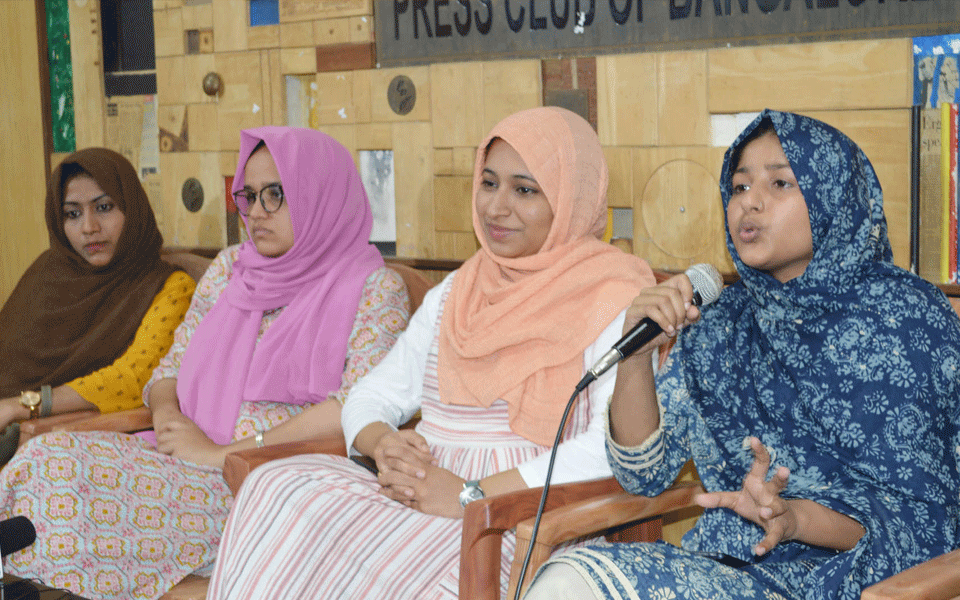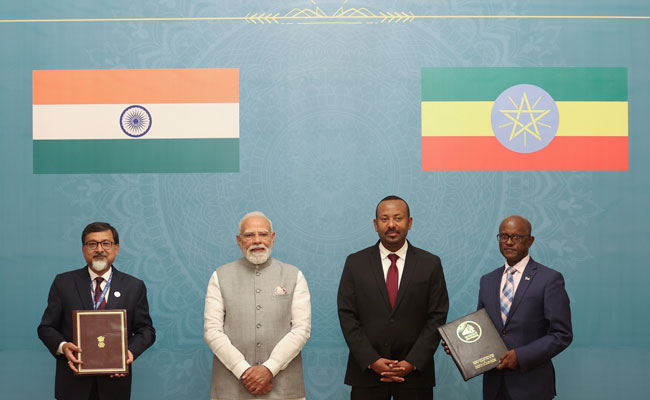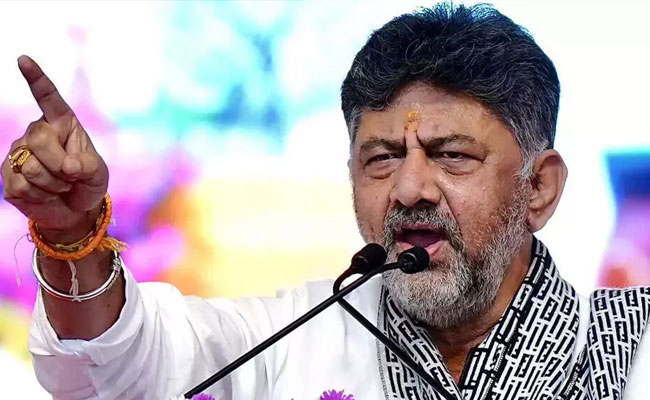Bengaluru: A delegation of Fraternity Movement which toured Karnataka from February 25-28 amidst the Hijab row in the state, has released its finding in light of the ban on Hijab in classrooms and college campuses that started in Coastal Karnataka.
The delegation, according to an official press statement, collected testaments and took stock of the situation after the state-wide Hijab ban and subsequent row.
In its findings, the delegation has added that the ban is a targeted hate crime aimed to disempower young Muslim women and segregate the students on the lines of religion.
“We have found that hundreds of Muslim women are expelled from attending classes in the state, following the court interim order, in prima facia violation of human rights. The interim order is not only problematic to the beliefs and practices of the Muslim community but in fact enabling apartheid against Muslim women. In the name of uniformity and law & order, they are being humiliated and dehumanised,” the press release stated.
It further added that Muslim women in the state are being put in “an unfortunate position” and are being made to make a choice between their education and faith, both of which the press statement termed as basic human rights.
“The brave Muslim students are unwilling to compromise on either. They are concerned that they are or will be missing their exams which is adding on the anxieties and insecurities that surround them. These are teenage students who are burdened to brave this herculean fight for their identity and dignity,” it added.
It also added that several Muslim male students they made were physically harassed and attacked by their classmates affiliated to Hindutva right wing groups adding that it was concerning how ABVP and other right-wing groups were reacting to the situation without any checks.
It also pointed how a young Muslim student Muskan Khan was being heckled by a group of Hindutva activists and students at the college campus in Madikeri, the video of which went viral creating shockwaves across the country.
“We all saw the video where Muskan was heckled by 30-40 odd hindu students radicaliesed by the RSS donning saffron stoles that surfaced from Mandya, Karnataka. As everyone moves on from the incident we want to stress that the situation is all the more tense and serious.
“The whole issue escalated only after members of the ABVP and other right wing outfits started a mobilization against hijab distributing saffron stoles and invoking Hindu supremacy. This incident is an example of the patterned way in which these organisations work,” it further added.
The delegation also slammed the state government over their inability to contain the situation and blamed the BJP ministers of furthering hate and Islamophobia. “The Karnataka BJP is trying to turn this issue of rights into international conspiracy. The Home Minister has also ordered a probe into the terror links into the matter. The stereotypical suspicion that surrounds muslims is being invoked to rob the marginalised off its humanity and dignity,” it stated.
“Local and regional media channels are further harassing and intimidating the affected Muslim students. They are violating not only media ethics but all moral ethics. Saffron television channels are using this incident to demonise and stereotype Muslims to manufacture a collective apathy that will further normalise attacks on Muslims and their religious practices.
“We found out that incidents of violence and physical assault in several districts especially in Shimoga are directly unleashed at the members of the Muslim community. The affected areas have been barricaded by police and section 144 has been imposed making it impossible to monitor the situation and intensity of violence. Several videos that came out are evidence that the police was silent onlooker of the attacks,” the press statement further added.
Listing out its demands after based on their findings during the visit, the Fraternity Movement added the Hijab ban should immediately be revoked along with the “discriminatory interim order” and demanded that the government should direct CDC and college administrations to ensure that students allowed to appear fo exams that they have missed or that may be miss because of the ban.
It also called for arrangement of law enforcement for the safe and dignified return of Muslim students to schools and colleges while all FIRs filed on the protesting Muslim students should also be withdrawn.
Among the other demands of the Fraternity Movement were police action against the right-wing outfits and pro-Hindutva students who were involved in communalising the matter and heckling Muslim women, impartial probe into the violence that broke out in Shivamogga and other areas and action against the culprits while also providing compensation to those who have incurred property loss during the violence.
Let the Truth be known. If you read VB and like VB, please be a VB Supporter and Help us deliver the Truth to one and all.
Addis Ababa (PTI): India and Ethiopia on Tuesday elevated their historical ties to a strategic partnership, as Prime Minister Narendra Modi held wide-ranging talks with his Ethiopian counterpart Abiy Ahmed Ali during which they discussed issues of bilateral and mutual interest.
Modi, who arrived here from Jordan on his maiden bilateral visit, was accorded a ceremonial welcome at the National Palace ahead of the bilateral talks, reflecting the vibrant India-Ethiopia relations rooted in shared history and a promising future.
"We are elevating India and Ethiopia relations to a strategic partnership. This step will provide new energy, new momentum and new depth to our ties," Prime Minister Modi said during the delegation-level talks.
He thanked PM Ali for his support in India's fight against terrorism. "The support of friendly countries in this struggle against terrorism holds great significance," Modi said.
"Today, we got the opportunity to deliberate on the key aspects of our cooperation, such as economy, innovation, technology, defence, health, capacity-building and multilateral cooperation. I am pleased that today, we have decided to double the student scholarship for Ethiopia in India," Modi said.
Modi said that India and Ethiopia have shared contact, dialogue, and exchange for thousands of years. The two countries, which are rich in languages and traditions, are symbols of unity in diversity, he added.
"Both countries are democratic powers committed to peace and the welfare of humanity. We are co-travellers and partners of the Global South. On international platforms, we have stood shoulder-to-shoulder," he said.
The two sides signed eight MoUs/agreements, including upgrading ties to 'Strategic Partnership', customs cooperation, establishing data center at the Ethiopian Foreign Ministry, UN Peacekeeping training cooperation, debt restructuring under G20, more ICCR scholarships and AI short courses for Ethiopians, and support for maternal and neonatal healthcare.
Modi said the African Union's headquarters in Ethiopia makes the country a meeting point of African diplomacy. "Inspired by the common vision of an inclusive world, in 2023, India ensured that the African Union became a G20 member," he said.
In 2023, during India’s G20 Presidency, the African Union was admitted as a permanent member of the G20.
Modi said that though this is his first visit, he felt a deep sense of belonging and warmth, reflecting the thousands of years of connection between the two countries.
On his part, Prime Minister Ali said the two countries share over thousands of years of connection through trade, diplomacy, education, culture and even in our food and traditions. "These ties continue to shape a deep friendship, collaboration and mutual respect between our people," he said.
"We also appreciate your consistent message that Africa's priorities must lead the partnership. These kinds of dignified, respectful messages for Africa are very important. Mr Prime Minister, keep pushing. That is the type of message we are expecting from all our trusted friends," Ali said.
He said this aligned fully with Ethiopia's development plan - African-owned, African-led, and African-defined.
"Today, we meet with a clear focus to shape a modern partnership, grounded in sovereignty, self-reliance and practical cooperation. Our cooperation is rooted in equality and South-South solidarity," he said.
"Our economy is performing strongly. Last year, we grew 9.2% and this year we are expecting 10.3% GDP growth. Besides GDP growth, our FDI inflow is also rising big time. India is the leading source for our FDI," he said.
"We have more than 615 Indian companies which are investing in Ethiopia. This all gives our cooperation a strong foundation of trust. I think our decision today that we elevate our historic relationship to a strategic relationship is the right decision," he added.
Ethiopia also conferred its highest award - The Great Honour Nishan of Ethiopia - on PM Modi. He is the first global head of state to receive this award.
Prime Minister Modi also went to the Friendship Park and Friendship Square in Addis Ababa with PM Ali.
In a warm and special gesture, PM Modi was earlier received by his Ethiopian counterpart at the airport and accorded a warm and colourful welcome.
"Ethiopia is a nation with great history and vibrant culture," Modi said.
PM Ali informed his Indian counterpart about the varieties of Ethiopian coffee during informal talks.
"At Addis Ababa airport, took part in a traditional Coffee Ceremony with Prime Minister Abiy Ahmed Ali. The ceremony beautifully highlights Ethiopia’s rich heritage," Modi said.
In a unique gesture, the Ethiopian Prime Minister drove Modi to the hotel.
On the way, he took a special initiative of taking PM Modi to the Science Museum and Friendship Park, which was not in the itinerary.
"Gratitude to Prime Minister Abiy Ahmed Ali for showing me glimpses of Ethiopian history and culture at the National Palace Museum in Addis Ababa. It was a powerful reminder of Ethiopia’s rich traditions," Modi said in a post on X.
The Nobel Peace Prize-winning Ethiopian PM’s special gestures show remarkable respect for Modi, sources said.
"Thank you Ethiopia for a welcome that was unforgettable. The Indian community showed remarkable warmth and affection. India-Ethiopia friendship is going to get even more robust in the times to come," Modi said.
When Modi arrived at the hotel, he was warmly welcomed by the members of the Indian community. Local artists performed dances. Some of them danced on the theme of the popular Hindi song 'Aisa Des Hai Mera' to welcome him.
On Wednesday, Modi will address the Joint Session of Parliament and share his thoughts on India's journey as the "Mother of Democracy" and the value that the India-Ethiopia partnership can bring to the Global South.
PM Modi arrived in Ethiopia from Jordan, where he held a one-on-one meeting with King Abdullah II at the Husseiniya Palace on Monday before the delegation-level talks.
India and Jordan also inked MoUs in the fields of culture, renewable energy, water management, digital public infrastructure and twinning arrangement between Petra and Ellora, aimed at giving a major boost to bilateral ties and friendship.
From Ethiopia, Modi will visit Oman on the final leg of this three-nation tour.





